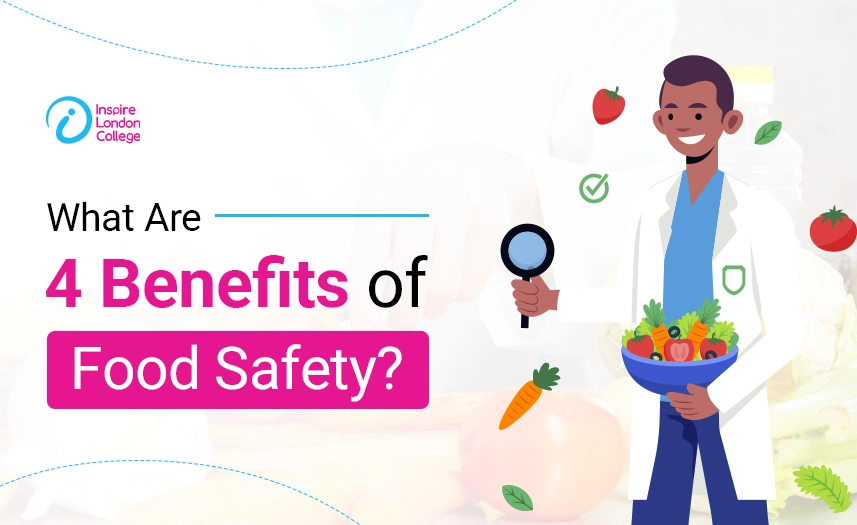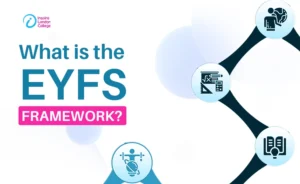Eating out has become a normal trend in today’s world. But have you ever noticed that so many of you get ill after dining out? That’s because food safety standards are not fully met. You would be surprised to know that an estimated 60 million people get sick after eating contaminated food and around 420,000 people die each year according to WHO. Hence, food safety is not just a regulatory requirement but is essential for public health and economic stability. Besides this, it benefits your business in many ways. In this article, let’s explore more about food safety, its importance, and what are 4 benefits of food safety.
What is Food safety?
Food safety refers to handling, preparing, and storing food in a way to best reduce the risk of individuals becoming sick from foodborne illnesses. In other words, food safety includes conditions and practices that help preserve the quality of food to prevent contamination and foodborne illnesses. Hence, ensuring the safe production, handling, and storage of food prevents contamination, minimises the risk of foodborne illness, and promotes good health. So, it means with proper precautions, cooking for large crowds would be a safer and less stressful process for your businesses.
Why Is Food Safety Important?
You might not know that food safety plays a crucial role in safeguarding the health of your consumers. Whether you are a food manufacturer, restaurant owner or home cook, practising food safety is extremely important. Because neglecting the food safety protocols gives rise to foodborne illnesses, health complications and in the worst case scenario, death. According to UK official statistics (2021), an investigation by public health agencies reported around 276 foodborne disease outbreaks between 2015 and 2020. And 10,000 of them are associated with human cases.
However, ensuring food safety helps you to provide safe, nutritious, and delicious food to your customers or community members. Moreover, this practice of food safety and hygiene is directly related to your business reputation and long-term success. If you fail to provide healthy nutritious food and a disease outbreak occurs, then your business is doomed. Not only will you have to bear the financial loss due to lawsuits and compensations but also irreparable damage to your brand’s reputation.
What Are The 4 Benefits of Food Safety?
The benefits of food safety extend beyond preventing illnesses. From reducing financial losses to global trade opportunities, this practice supports your business in numerous ways. Here are the top four benefits of food safety that you should know:
Prevents Foodborne Illnesses
One of the main problems in the food industry is the contamination of food with harmful pathogens, like bacteria, viruses, parasites, toxins and other chemicals. These agents cause foodborne illness and various health complications. However, following food safety and quality management hygiene practices assists you in preventing such food contamination. This, in turn, reduces the risk of disease outbreaks from your side and minimises the health-related consequences for your customers. So, prepare, handle, and store your food correctly and contribute significantly in protecting public health.
Enhance Brand Reputation and Builds Customer Trust
The major concern of your customers is from where they should buy the food and how it is prepared. But when you consistently meet the food safety rules or standards, your customers find confidence in the products they purchase from you. And you know what, this trust increases the customers’ loyalty and maintains your positive brand image. Also, ensuring food safety makes your brand reliable for both quality and care. Not to mention, this trust helps in word-of-mouth recommendations which leads to your business growth and greater revenues. Isn’t it incredible?
Complies With Legal Requirements
Maintaining food safety shows your commitment to healthy food and protects public health. Different agencies like the Food Standard Agency checks and maintains the food standards in the United Kingdom. Adhering to their safety standards and using the food safety management systems helps you to prepare and deliver healthy food to your clients and customers. Also, your compliance with regulatory requirements assists you in avoiding legal issues like fines, product recalls and in the end, business closure. The best part? This legal compliance helps you secure partnerships with large distributors, retailers, and international markets.
Reduces Operational Costs and Food Waste
Food safety protocols lead to more efficient and smooth business operations. Hence, hygiene practices for food handling aid in reducing your food waste and operational costs without worries. For instance, using the proper inventory management system and temperature control system assures that food is prepared and stored in optimal conditions. This reduces the likelihood of food spoilage and contamination-related waste. Moreover, less product wastage saves your money and ultimately increases your profit margins.
Other Benefits of Food Safety
Alongside the major benefits, understanding the importance of food hygiene and implementing safety practices offers you other advantages that include:
Increases Employees Safety and Morale
A safe work environment boosts employees’ efficiency and satisfaction in preparing and handling products. Food safety practices reduce the risk of accidents and illnesses, contributing to overall employee well-being. Alongside this, a safer work environment increases their morale which benefits your business with smooth operations.
Improves Product Quality
Following the safety standards helps you enhance product quality in the best way. Maintaining the required temperature, using hygiene practices, and avoiding contaminations increases your product lifespan. Thus, food safety enables you to meet customer satisfaction with high-quality products.
Economic Advantage
Implementing food safety protocols gives you an economic advantage as compared to others in the same industry. Firstly, it reduces product wastage, product revisions, and fines due to non-compliance with regulations. Secondly, it increases your brand reputation and builds customer trust in your products which means more clients.
International Recognition
Besides the economic advantages of food safety, compliance with global food safety standards paves the way for the international market. Following the best hygiene practices and food safety regulations helps you meet international standards for potential suppliers. This assists in expanding your business around the globe.
Best Food Safety and Hygiene Practices
Now you may have got the idea why food safety is important for health and your business’ success. To help you adapt the best practices, here are the important steps that you should follow:
- Keep Everything Clean: The first step of cleanliness is to wash your hands before food preparation and frequently during food handling. Most importantly, wash them after touching unsafe surfaces, using the toilet, or handling raw meat. Also, wash and sanitise all the surfaces and equipment used during food preparation.
- Separate Raw and Cooked Food: Understand the importance of food safety, separate meat, poultry, and seafood at all stages from cleaning to cooking. Also, use separate utensils for each food.
- Cook Thoroughly: No matter which food you are cooking, make sure that you cook it thoroughly, especially meat, seafood, eggs and poultry.
- Store At Optimum Temperature: Store the cooked food at its prescribed temperature. Don’t leave any food at room temperature for more than 2 hours. Cover and refrigerate all the cooked food instantly.
- Label Expiry Dates: Use the proper labels and mention expiry dates to prevent the consumption of spoiled or expired products.
How to Study Food Safety?
If you want to become a food safety professional and wondering how to study food safety, here are the following steps to join the industry:
- Do your research and find the right accredited food safety courses from reliable institutes or platforms.
- Stay updated with global food safety standards and local regulations.
- Utilise the online resources to learn more about food safety processes and techniques.
- Follow the best food safety and hygiene practices to deliver healthy food to your clients.
- Stay more focused on preventive measures, like hazard identification and implement control measures.
Conclusion
To sum up, food safety has an immense impact on health and provides various benefits. You can protect human health, increase the brand’s reputation and commit to regulatory compliance with the right practices by knowing 4 benefits of food safety. Additionally, safety protocols keep your employees safe, improve product quality, and lead to your international recognition. So, follow the best hygiene practices from food preparation to storage and labelling, and deliver top-quality products to your customers.







